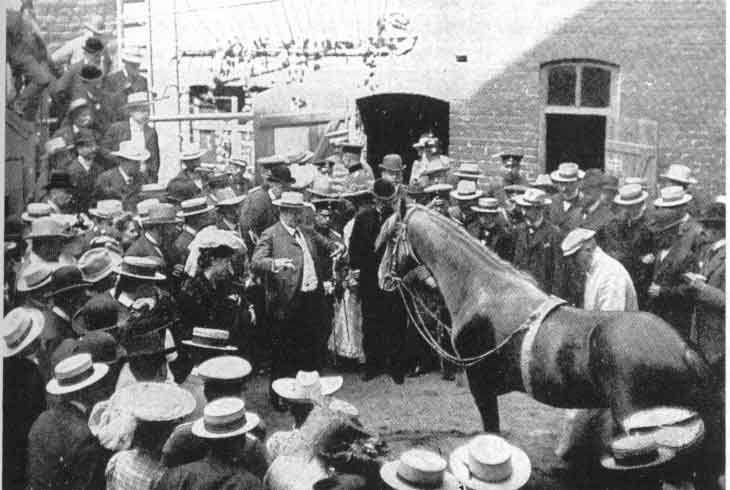This Week I Learned - Week 33 2021
What is this? An semi-unstructured brain dump of things I read or learn - hopefully weekly. This is a bit short this week, too much writing my thesis.
Effect of the Week
Clever Hans or observer-expectancy effect. Clever Hans was a horse that was trained to count and do simple maths. Or could it? Turns out Hans was not trained to do these things but look for subtle clues in body language by his handler (Wilhem von Osten).
 The Observer-expectancy effect describes an effect whereby (subconsciously) observing the behavior of others (e.g. a researcher) behavior changes. And with confirmation bias, a researcher might interpret the results incorrectly, as this observed behavior confirms his/her assumptions instead of looking for unpredicted influences.
This effect can also happen in AI, e.g. while training neuronal networks. The body language of machine learning practitioners is the training set. We often do not know whether a network learned anything (also called Generalization), we can only assume its overall performance based on the performance on a novel, unseen data (validation data set).
The Observer-expectancy effect describes an effect whereby (subconsciously) observing the behavior of others (e.g. a researcher) behavior changes. And with confirmation bias, a researcher might interpret the results incorrectly, as this observed behavior confirms his/her assumptions instead of looking for unpredicted influences.
This effect can also happen in AI, e.g. while training neuronal networks. The body language of machine learning practitioners is the training set. We often do not know whether a network learned anything (also called Generalization), we can only assume its overall performance based on the performance on a novel, unseen data (validation data set).
Tech
- Attackers might be able to eavesdrop on virtual meetings by looking at the changing intensity of power LEDs. Many devices like USB splitters, loudspeakers, or power adapters unintentionally have minimal changes as power consumption changes. The Glowworm attack recovers sound by observing these changes via a telescope. This is just one of many attacks, that recover sound based on visual information, e.g. vibrations in lightbulbs, plants. Similarly, one can use LED to transfer data from air-gapped computers. (Guri et al., 2019)
Bibliography
Mordechai Guri, Boris Zadov, Dima Bykhovsky, and Yuval Elovici. Ctrl-alt-led: leaking data from air-gapped computers via keyboard leds. In 2019 IEEE 43rd Annual Computer Software and Applications Conference (COMPSAC), volume 1, 801–810. IEEE, 2019. ↩